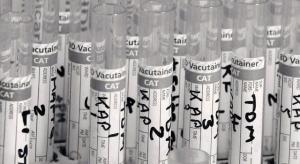All Features

Kari Miller
Since 2010, citations for insufficient corrective action and preventive action (CAPA) procedures have been at the top of the list of the most common issues within the U.S. Food and Drug Administration (FDA) inspections, particularly for the medical device industry. Issues can occur while…

Etienne Nichols
Amedical device company is expected to deliver innovative, life-changing devices while ensuring compliance and achieving true quality. This task bears loads of responsibility—all of which must be kept and documented within your quality management system (QMS).
A QMS contains everything that…

Stephanie Ojeda
Design controls are a frequent citation in 483 observations and warning letters from the U.S. Food and Drug Administration (FDA). In fact, the agency has noted a large proportion of past recalls that could have been prevented with design controls.
FDA guidance also makes an explicit link between…

Michael King
Medical companies work in an environment of ever-increasing challenge and complexity. Global regulations continue to evolve with advancements in technology and variations in requirements from country to country. This brings unavoidable technical complexity to daily tasks of quality and regulatory…

Melissa Phillips
The levels of contaminants in our food supply are, generally, decreasing. That’s the good news.
But we still need to measure those contaminants and make sure our food is safe. And measuring tiny things (and big things) is what we do best here at NIST.
In our food safety program, we’re studying all…

Matthew M. Lowe
Change of any kind often requires a catalyst. This is particularly true in a business environment where the rule of thumb is to do things the way they’ve always been done. And when you’re working in a regulated industry, processes tend to get more locked in because compliance is at stake.
That was…

Kari Miller
Life science organizations depend on quality management systems (QMS) to improve products, minimize risks, ensure patient safety, and support regulatory compliance. When companies use a horizontal QMS that is not purpose-built for the life science industry, they must execute additional steps to…

Etienne Nichols
I have a bold opinion: The corrective and preventive action (CAPA) process is the second-most important component of your quality management system (QMS). (If you want to know what I think is No. 1, shoot me an email.) As you build medical devices, a well-defined CAPA program provides a framework…

Grant Ramaley
As of 2023, more than 27,000 medical device QMS certificates have been issued worldwide, providing confidence in medical devices. From cardiac stents to simple dental tools used to correct teeth, the healthcare systems of the world have come to rely on ISO 13485 to provide critical support to world…

Etienne Nichols
In a highly regulated industry like medical technology, manufacturing processes must undergo either process verification or process validation to ensure they’re consistently producing the correct result. The question is, which one should you use?
Verification and validation are two different…

Liza Dzhezhora
Having appeared in the early 2000s, connected health technologies have gradually become a game changer in the healthcare industry. Healthcare providers that have embraced smart medical IoT solutions reduce costs, improve patient experience, and ensure preventive care.
The trend is not fading away…

Del Williams
For owners and operators in the agricultural and food-processing industries, Jan. 1, 2022, was the deadline for completing a dust hazard analysis (DHA) for existing facilities in accordance with Chapter 7 of the National Fire Protection Association’s Standard 61 (2020) for the Prevention of Fires…

Doug Folsom
Unpatched vulnerabilities remain a target of cyberattacks, and an ever-present risk for healthcare organizations. Medical devices pose an additional burden because patches are frequently unavailable for medical devices. So, dealing with the potential threat isn’t usually straightforward. The stakes…

Del Williams
With the threat of contamination from harmful pathogens such as salmonella, listeria, and e. coli a continual concern, food processors are seeking to protect not only the public but also their companies’ bottom lines from the massive costs, reputational damage, and greater regulatory scrutiny…

Dirk Dusharme @ Quality Digest
In 2010 a medical device scandal in France set the stage for a new European Union medical device regulation that, according to most experts in the medical device community, may cause more damage than the problem it was intended to address. An unreasonable deadline, lack of notified bodies to…

Dirk Dusharme @ Quality Digest
Every company wants to succeed, but not all can say they meet the current requirements to do that. More than a focus on capital, business plans, or staff, a successful business in 2022 must operate digitally. Yet for the 45 percent of small and medium-sized businesses (SMBs) that still rely on…

Jill Roberts
Florida’s outbreak of listeria has so far led to at least one death, 22 hospitalizations, and an ice cream recall since January 2022. Humans get sick with listeria infections, called listeriosis, from eating soil-contaminated food, undercooked meat, or dairy products that are raw or unpasteurized.…

Patricia Santos-Serrao
The pharmaceutical industry has seen significant upheaval and disruption during the past several years. These changes are due in part to the impacts of Covid—for example, interruptions in the supply chain and overwhelming market demand for shortened production times.
They are also being driven by…

Del Williams
The use of membrane technology as a processing and separation method in the food industry is gaining wide application for demineralization, desalination, stabilization, separation, deacidification, purification, and reducing microbial load.
Perhaps the most obvious application for membrane…

Jamie Steiner
Ultra-low temperature freezers became popular due to the storage of Covid-19 vaccines, but they have been important components of laboratories for many years. There’s a lot, however, to think about—quality, productivity, maintenance, different types of technology, warranties, etc. And if you end up…

Kari Miller
Quality management is essential to the growth and performance of any organization. It’s a valuable resource in the effort to ensure that products and services satisfy the highest quality requirements and deliver positive customer results.
Pharmaceutical manufacturers must ensure that the…

Dario Lirio
By now, it’s no secret that good clinical practice (GCP) guidelines used by FDA inspectors are expanding. These GCP guidelines are developed by the International Conference on Harmonization. The ICH last revised its GCP document, called ICH E6(R2), in 2016. It will be releasing a new version in…

Alexander Khomich
The digital transformation of healthcare is under the influence of trending technologies, from IoT devices to AI algorithms. Some healthcare providers are just getting acquainted with innovations. Others (93%, according to Accenture) are already actively implementing and creating software solutions…

Gary Shorter
Predictive and prescriptive insights driven by data analytics have risen to prominence as tools that can help research teams cut the time, complexity, and cost of clinical trials. At the same time, these insights can enhance the quality of a study and accelerate new drugs to market. But to uncover…

Etienne Nichols
On February 23, 2022, the FDA released its proposed rule for the new Quality Management System Regulation (QMSR). The proposed QMSR will be the result of aligning the current good manufacturing practice (cGMP) requirements of the FDA’s Quality System Regulation (QSR) with the international…